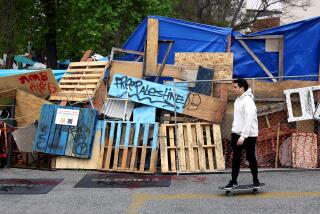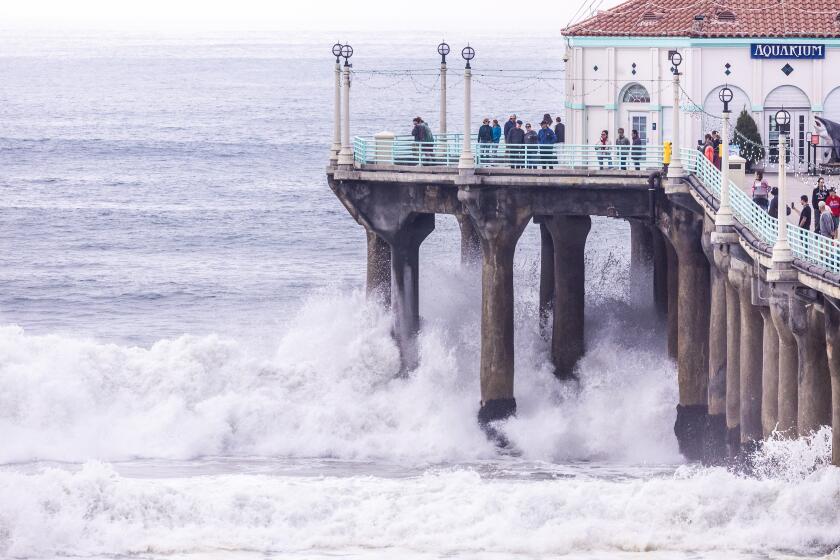CSUN Officials Say He’s Safe : Missing Student Located in China
The only remaining Cal State Northridge student still missing in China since the killings began there earlier this month has sent word to his family that he is safe, CSUN officials said Tuesday.
The student, Jeff G. Winters, 29, and two female companions sent word to their families by telegram Monday that they were traveling through Yunnan province in the southwest corner of China, near the cities of Dali and Lijang, school officials said. The telegram was sent to the father of one of the women. The message was relayed to Winter’s mother in Salt Lake City, Utah, officials said.
School authorities had not heard from Winters--one of 28 CSUN students who had spent the spring semester studying Chinese language, history and geography at Shaanxi University in the city of Xian--since May 26. Officials had feared that the blond and blue-eyed Winters, although fluent in Chinese and an experienced Asian traveler, might have run into trouble.
Six other CSUN students are still in China, said Adele Juarez, overseas studies director.
Now Feels Safe
Four of those students have decided to remain in Xian until the end of June, Juarez said. Another student who had been hiding with a friend’s family in Beijing called his parents Monday to say that he now feels safe and will remain there until June 20. A sixth student, who fell ill while traveling through western China, has joined the group in Xian and is planning to leave the country this week, Juarez said.
Two CSUN students who cut short their stay in China and left May 23 because of growing tensions in the city of Xian said in campus interviews Tuesday that CSUN officials were slow to respond to the trouble there. Xian is about 600 miles south of Beijing.
“They should have taken the conservative route and told the students to come home earlier,” said Artanzia Parker, 22.
Jennifer Bostow, 20, said that shortly before she and Parker left China, the CSUN administrator in charge of the students in Xian told her that there was little danger. But ten days later, Chinese troops fired on students in Beijing’s Tian An Men Square, Bostow said.
CSUN Associate Vice President Mack Johnson said the school had sent a memo to the students in Xian during the week of May 22 that contained the latest advice from the State Department. At that time, State Department officials recommended that American citizens not travel to China but did not recommend that Americans leave the country, Johnson said.
Meanwhile, at a press conference Tuesday, CSUN geography department chairman I-Shou Wang, one of seven professors who returned to Los Angeles from China on Monday, said he believed that the group was never in danger in Xian.
“I never felt any threat,” said Wang, who has traveled to China eight times in the last nine years. “I was very surprised to hear that my colleagues were terrified . . . the difference was their perception.”
Several of the returning professors had said they became fearful while in Xian after hearing rumors that the Chinese army was preparing to enter the city and forcibly quell the massive student demonstrations there.
More to Read
Sign up for Essential California
The most important California stories and recommendations in your inbox every morning.
You may occasionally receive promotional content from the Los Angeles Times.










